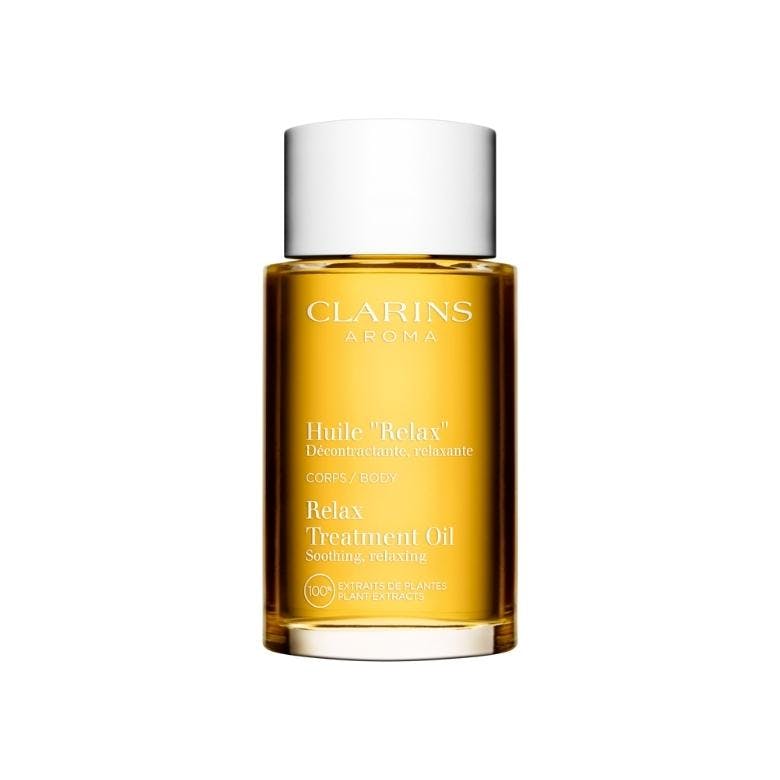Stress-Relief Strategies: 9 Ways To Reduce Stress And Anxiety
9 minutes read
Feeling stressed, anxious or both? Can’t tell which is which? We get you. Stress and anxiety are often used interchangeably, and it can be quite hard to set them apart but it’s important to know how to identify and differentiate signs of stress and anxiety to prevent them from becoming a bigger issue.
“Stress is about something that’s happening right here, right now in front of you, whereas anxiety is when you’re fearful or concerned about something that’s not actually happening, it’s all in your head,” Neil Shah, Founder and Director of The Stress Management Society, tells Beauty Daily.
A lot of the experiences people call ‘stress’ could be anxiety. It is critical to know the difference because stress is a biological state and anxiety is a mental or emotional state.”
Both stress and anxiety have different origins and finding an effective stress relief plan is key. Beauty Daily speaks to three leading stress experts about stress relief strategies that work to help you reduce and manage daily stress and lingering anxiety.

Stress and anxiety: what are the common symptoms and how do they differ?
“There’s a fine line between stress and anxiety. Both are emotional responses, but stress is typically caused by an external trigger. The trigger can be short-term, such as a work deadline or a fight with a loved one; or long-term, such as being unable to work, experiencing discrimination, or chronic illness. People under stress experience mental and physical symptoms, such as irritability, anger, fatigue, muscle pain, digestive troubles, and difficulty sleeping.
Whereas anxiety is defined by persistent, excessive worries that don’t go away even in the absence of a stressor. Anxiety leads to a nearly identical set of symptoms as stress: insomnia, difficulty concentrating, fatigue, muscle tension, and irritability,” explains Richard Reid, TV psychologist, and CEO of Pinnacle Wellbeing Services.
However, stress is not always detrimental to our well-being.
Shah says: “A little stress isn’t necessarily a bad thing. When it’s too much, it can be too overwhelming, but when things are too easy, you’ll be either bored or lethargic and have no passion or motivation to get anything done. And then you get the state when it’s just right. Where you can challenge your mental, emotional and physiological state in a way it can maximise and drive your performance.”
9 ways to relieve stress and anxiety
Implementing stress relief strategies as part of your daily routine means that you can prevent yourself from a downward spiral. It does not mean that you will never feel sad, anxious, stressed, or overwhelmed, but it means that when you do, you know that it is temporary, that things will get better and that you can cope.
Here are nine science-backed and expert-approved stress relief strategies and activities to reduce daily stress and anxiety.
1. Try to eliminate the stressors
Choose your battles wisely. Don’t sweat the small stuff. Let go of things, stop wasting your time and energy stressing or over analysing things.
“It’s not always possible to escape a stressful situation or avoid a problem, but you can try to reduce the stress you are feeling. Evaluate whether you can change the situation that is causing you stress, by dropping some responsibility, relaxing your standards, or asking for help,” says Reid.
2. Eat happy and healthy food
Studies have shown that nutrition plays a significant role in mood and mental health. Jemma Joel, Registered Nutritionist and NHS Health Coach says: “There is a two-way communication system between the brain and the gut called the gut-brain axis. The communication from the gut to the brain is around 90%, and our gut has a huge influence on our mood.” Meaning when you stick to a diet of healthy food, you’re setting yourself up to reduce your stress levels.
The best way to keep the gut happy and healthy is by feeding it with good bacteria. This is where pre and probiotics come in handy, says Joel. “Prebiotics act as a fertiliser for good bacteria in our gut and probiotics are found in plant-based foods such as onions, garlic, bananas, oats, and asparagus. Probiotics are good bacteria, and these can be found in fermented foods and live dairy products, usually called ‘live cultures.’ Having a healthy gut microbiome will ensure that our neurotransmitters can do what they need to do to support our mood.”
If you’re looking for a probiotic supplement, Joel recommends Symprove. “It’s an efficient way to get a daily dose of live bacteria in your system – contributing to both a happy, healthy gut and mood, as part of a balanced diet.”
3. Keep your pleasurable activities
When you find yourself stuck in a deep, dark hole and when life just gets too much and you can’t take it anymore, halt. Give yourself time to breathe and be available to do something that gives you joy.
“When life gets overwhelming, people often drop their leisure activities first. But cutting yourself off from pleasure can be counterproductive. Even when time is tight, look for opportunities to do something for yourself, whether that means reading a novel, singing along to your favourite tunes, or streaming your favourite comedy on Netflix. Humour and laughter can be beneficial to both our mental and physical health,” Reid says.
4. Cultivate social support
Strong social support improves resilience to stress. Reid recommends reaching out strategically. “Some friends or family members may be good at listening and sympathising. Others might excel at practical help, like bringing over a home-cooked meal or covering an hour of childcare. Giving support can also increase positive emotions and decrease negative emotions. Just make sure your relationships stay in balance,” he cautions. “A friend who requires support but never gives any back may increase your stress levels.”
5. Relax your muscles
Being stressed out or anxious can create tension headaches, backaches, and general fatigue. You can combat these symptoms with stretches, essential oil-filled warm baths, or massage. Beauty Daily recommends booking the 70 min Energy Booster Body Treatment, £70. It is designed and dedicated for people with low energy levels and is ideal for people who suffer from stress and anxiety, using mood-enhancing aromatherapy blends designed to lift the senses. The energy booster will be a lot more rhythmical and involve slightly deeper pressure to sweep away stress and help rebalance the body and mind. Book here.
Or try progressive muscle relaxation, a method that reduces anxiety and improves overall mental health. Reid recommends getting in a comfortable position and choosing a muscle group, like your lower leg muscles (most practitioners recommend starting with the lower body and working your way up). “Inhale and contract the muscles for five to 10 seconds, then exhale and release the muscles suddenly. Relax for 10 or more seconds and then move on to the next muscle group.”
6. Protect your sleep
“Try to have a consistent sleep routine that allows time to wind down before lights out. Meditation and relaxation can help with insomnia. Also, avoid caffeine and alcohol in the late afternoon and evening. Put down your screens, as blue light can suppress the sleep hormone melatonin,” Reid recommends.

Beauty Daily recommends spritzing Eau Ressourçante, £38 on your pillowcase or your bed linens. It has a calming and relaxing scent of chamomile and basil that will help you sleep like an infant. Or wind down by massaging the Relax Treatment Oil, £42 onto sore or tense muscles.
Read next: Sleep Experts Share Adult Night Routine Tips For A Good Slumber
7. Reframe your thinking
Stop the self-negative talk and reframe your thinking. Positive thinking doesn’t mean ignoring life’s less pleasant situations, but it makes you focus on the best that is going to happen.
“Reframing your thoughts around a particular stress trigger can help manage your emotions, reducing feelings of stress. If you feel yourself spiralling into imagining worst-case scenarios, stop and put your mind elsewhere. Set realistic expectations for yourself. Strive for acceptance of situations outside of your control,” Reid advises.
8. Stop doomscrolling and unplug the tech
The mindless and constantly scrolling through social media or the web – which experts call doomscrolling – makes you even more stressed and anxious. Apart from comparing yourself with other people’s highlights, consuming negative news is linked with increased levels of fear, stress, anxiety, and sadness. So schedule some time every day to unplug – particularly before bed. And curate your social media feeds to edit out those negative Nancys!
9. Practice mindfulness
“There is no one-size-fits-all solution,” Shah explains. “For me, the most important thing is to be mindful, to be present. Even something as simple as coming to focus on our breath, going for a walk, and just being aware of the sun and the sky – the wind rustling through the leaves, or birds tweeting. It brings you back to the reality of the moment rather than being in this state of anxiety about things that haven’t happened yet. Or worrying and ruminating about things that have already happened,” he adds.
Read more about mastering mindfulness here.
Are over-the-counter medicines for stress and anxiety available?
Aside from holistic remedies, there are no over-the-counter medicines for stress and anxiety. If you’re considering taking prescribed medication, your GP should discuss the different options with you in detail before you start a course of treatment.
Shah says, “To me, medication is something you turn to for relief, but if you’re not careful you can become too reliant on it – rather than looking at how you can improve these issues in the long-term.”
Understanding why you have those issues is key. Shah recommends writing down all the possible reasons you are having that anxiety, why it’s affecting you and what’s behind it. In addition, it’s worth adding what actions can you take and whom you could turn to for support, to help lessen your anxiety issues.
With the stress, it’s more practical. You can deal with it right here, right now. Getting a good night’s rest, fresh air, movement and practising mindfulness are all great ways to calm down and reset your mood.
What is the importance of finding effective stress and anxiety relief?
“The long-term impact of leaving stress or anxiety unaddressed can be devastating. Long-term effects include memory problems, frequent migraines, heart problems and risk of heart disease, various illnesses from a lowered immune system and gastrointestinal disorders including irritable bowel syndrome,” Reid explains.
When to seek help?
If you feel overwhelmed and self-help tools aren’t working, seek out a licensed therapist or other mental health providers who can help you learn how to manage your stress effectively. “They can help you identify situations or behaviours that contribute to your stress and then develop an action plan to change the stressors, change your environment and change your responses,” Reid adds.
If you’re feeling stressed or anxious, just remember that it affects the vast majority of people and you’re not alone. It’s important not to suffer in silence and to create a supportive network of people you can talk to. Try to find like-minded communities, friends and qualified therapists who can understand and help with what you’re going through – and always remember to be kind to yourself. Nothing is worth jeopardising your health or happiness!
Visit stress.org.uk, mind.org.uk and anxietyuk.org.uk for more information and advice.
Read more: How To Sleep Better: The Bedtime Routines To Try Now
Sign up for our newsletter
We will keep you in the loop for special offers, exclusive gifts and product news.

